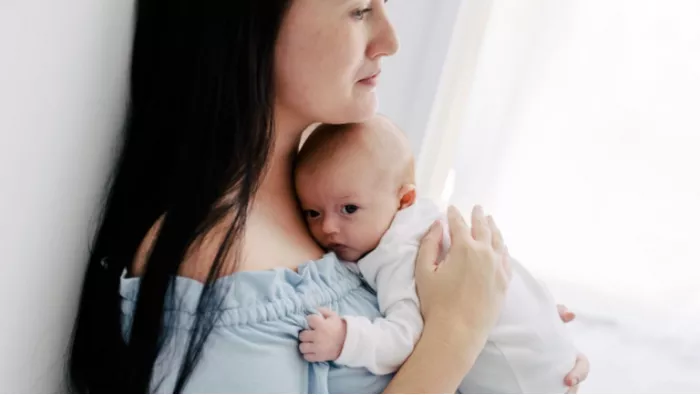When Vanessa Brown’s third son, Jeremy, was born in February 2018, she felt immense joy, immediately cuddling him to her chest. However, by the time the nurses had weighed and measured him, something changed.
“I suddenly felt disconnected from him,” the Brisbane mother of three recalls. For months, Vanessa struggled to bond with Jeremy. She cried when left alone with him and avoided picking him up, feeding, or playing with him.
By the time Jeremy was about six months old, Vanessa’s condition worsened. “I couldn’t sleep, I struggled with memory and concentration, and I had trouble separating dreams from reality,” the 37-year-old explains. “I’d go days without sleeping and then sleep for a whole day. I became convinced that the world was a bad place for Jeremy and that I had to ‘save him’ by ending his life. Sometimes I thought it was wrong and considered killing myself instead, but the thoughts about ending his life would return.”
Vanessa experienced rapid mood swings, anger, and overwhelming thoughts and voices telling her what to do. “I’d avoid holding Jeremy but didn’t want anyone else to hold him either, so he’d cry a lot, which made me cry too,” she says.
Despite recognizing she needed help, Vanessa struggled to find support. “I tried the doctor and the local hospital, but they told me I was too severe for the services they could provide,” she revealed. Her GP prescribed antidepressants and referred her to a psychologist, but the wait time was too long.
Nights were particularly hard. Vanessa would walk the streets until Jeremy fell asleep, or she could no longer continue, or until the police found her after her husband reported her missing. “I’d walk to the train station and think about throwing us in front of the train, but I’d end up just giving him to a stranger, saying, ‘take my baby’,” she reveals. “I’d just wander around before security found me.”
Eventually, Vanessa learned about the Lavender Unit on the Gold Coast, the only acute hospital for mothers in Queensland at the time, with only four beds. Fearing she wouldn’t get in, she climbed onto the roof of Logan Hospital, prepared to jump. “I knew I wasn’t well and everything seemed bleak,” Vanessa says.
Fortunately, a bed became available within a few days, and Vanessa spent six weeks receiving intensive treatment for postnatal psychosis. “It was very challenging. I couldn’t avoid things and had to talk about a lot of hard stuff. I couldn’t pretend things were okay anymore,” she explains. “I had no experience with mental illness, so it was a big shock. I was so confused because I just didn’t know what was happening.”
After a few weeks on antipsychotic medication, things began to change. “I saw him differently, like I was looking at him for the first time and had an instant bond with him,” she says. “It was lovely. I felt like things could be normal again.”
However, Vanessa experienced six further relapses, with voices urging her to hurt herself and her family, leading to more stays in mental health wards. “Sometimes the voices would tell me to burn the house down with my family sleeping, and they’d go over and over,” she reveals.
Now, Vanessa knows how to manage her condition and medication and seeks help early with a medical team. “There has been a lot of guilt over the lost time,” she admits. But she remains hopeful and committed to her recovery.


